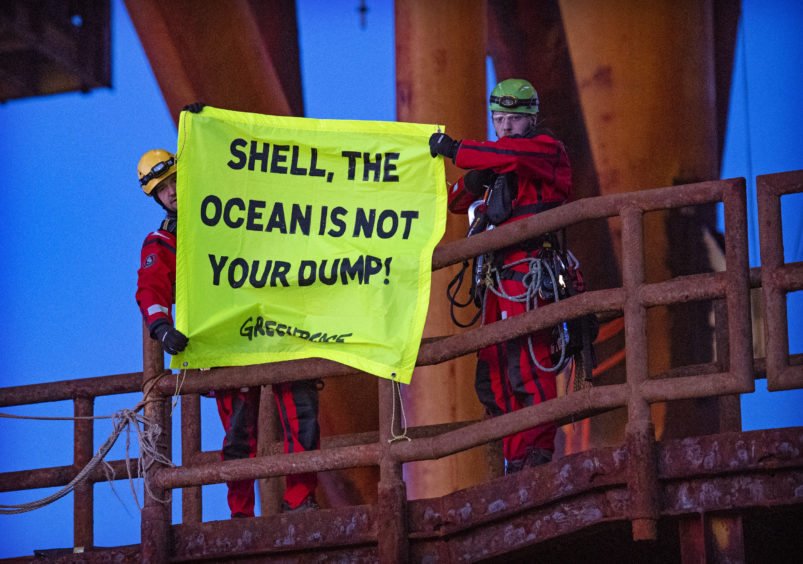
Germany’s environment ministry has said a “compromise” on Shell’s Brent decommissioning plans may be possible but leaving any oil remains is “not acceptable”.
A special meeting of Ospar took place in London on Friday to discuss what it said was the UK’s intention to approve Shell’s proposals to leave the legs of the Brent Bravo, Charlie and Delta platforms in the field 115miles off Shetland.
The UK is part of the convention to protect Europe’s marine environment whose rules state oil platforms must be fully removed at the end of their production lives.
Shell wants an exception to the Ospar regulations due to the technical, safety and cost challenges related to removing the giant structures, which they were not originally designed for back in the 1970s.
Germany and the Netherlands were supported by Denmark and the EU Commission in their calls for their removal, with concerns around the contents of the 64 oil storage cells within the legs – each the size of Nelson’s column – seeping into the sea.
Shell said it would take centuries for them to degrade and that the removal risks are “disproportionate” to environmental benefits.
ALSO READ: Residual liability rule could be ‘key part’ of Shell’s Brent debate
Oil within the cells is not free flowing in water but attached to sediment within the concrete cases.
Activist group Greenpeace staged a protest at the Brent field last week opposing Shell’s proposals.
The ultimate decision to approve the plans lies with the UK government which will “further engage” with the parties from this point.
The UK’s department for Business, Energy and Industrial Strategy (BEIS) did not give an estimate on when the decision will be made, when asked.
Stephan Haufe, a spokesman for Germany’s environment ministry, was at the Ospar meeting.
Germany has concerns around the contents of the oil storage cells.
He said: “If there is a part of the construction quite deep in the sea which has no risk for the safety of marine traffic then we are fine with it.
“We don’t say to remove completely the whole construction but it is very important for us to take away all oil. That is not acceptable at all to leave oil in the construction.
“If there is a certain kind of smaller part of the construction which you cannot decommission in a way, then we can accept it. It could be a compromise.
“Maybe we can make it that part of the construction can remain but what absolutely cannot remain in the water is the oil.”
Mr Haufe said there was “large understanding” from all parties that the aim of Ospar is to resolve special cases such as this with this being a chance to agree a standard for future “challenging cases”.
He added that the meeting brought “a common understanding on the challenge to deal with this quite old oil platforms”.
A spokeswoman for BEIS said the Ospar meeting forms part of the consultation process and will help inform the final decision.
She added: “Decommissioning is undertaken in accordance with UK and international obligations, in a safe and cost-effective manner while minimising risk to the environment.”
A Shell spokesman said: “It was a valuable opportunity to discuss the scientific work we did over a decade and to understand better the views of other Ospar members.”
Recommended for you


